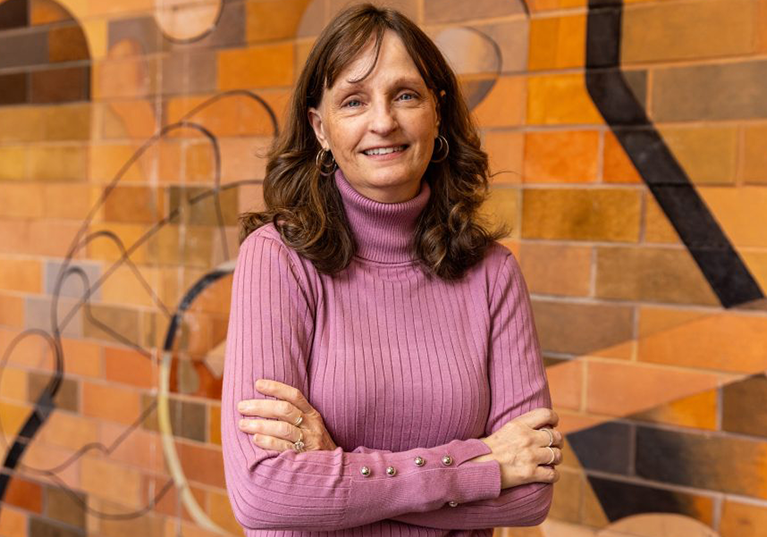January 31, 2024

By Eric Stann
Translating innovative academic ideas into real-world solutions requires robust training, resources and support. For researchers, this process can be challenging to navigate.
As a member of the Association of American Universities, the University of Missouri is one of America’s leading research universities. That’s why the U.S. National Science Foundation (NSF) has selected MU as one of 18 U.S. academic institutions to receive an Accelerating Research Translation award. This award will be used to set up a Technology, Entrepreneurship and Commercialization Hub, supported by a four-year, $5.5 million cooperative agreement with the NSF.
MU’s hub will support translational research projects — spanning all disciplines — that target the most challenging problems facing society. It will provide comprehensive support to researchers as they navigate the complex and oftentimes confusing process of converting research findings into viable commercial products or services by offering training programs, seed funding, resources and a supportive network of ambassadors.
“Our goal is to help address a knowledge gap,” said Sheila Grant, a professor in the MU College of Engineering and the principal investigator on the grant. “While Mizzou faculty have great research and write impactful academic papers, they might not know how to best translate their ideas into the commercial or consumer space. This hub can provide wrap-around support and mentoring to bridge the gap and help them reach the point of commercializing their product or service.”
Establishing a foundation of excellence
Each of the 18 academic institutions selected a mentor institution for this project. Mizzou’s mentor institution is Washington University in St. Louis. Nichole Mercier, assistant vice chancellor and managing director of the Washington University Office of Technology Management, will work with MU on the project.
“Washington University has a proven record of translating academic research findings into commercial enterprises,” said Tom Spencer, MU’s vice chancellor for research. “Under the direction of Sheila Grant and her team, we look forward to working with them and the NSF on this opportunity to help MU researchers forge a legacy of excellence in translational research.”
The hub has three main pillars. They are:
- Graduate student and postdoctoral researcher training: A series of eight-week training sessions are being designed to help innovators understand how to boost the impact of their research within their local communities. While geared toward students, these webinars will be open to anyone interested.
- Scale and build research translation capacity and infrastructure in identified gaps: A strategic idea studio will provide researchers with wrap-around support, mentoring and project management customized to the needs of the innovator and invention. Researchers can also participate in a 10-week commercialization bootcamp. They will be able to apply for seed funding, including two projects awarded up to $100,000 each per year. Funding decisions will be made by an external board of translational research experts.
- Capacity building in culture, awareness and broader impacts: A network of MU researchers with experience in commercialization will be established to help cultivate MU’s overall ecosystem and translation infrastructure by working toward a goal of enhancing a culture of technology, entrepreneurship and community-oriented commercialization.
Two projects have already been selected to receive seed funding from MU’s hub in the first year. They are:
- EcoTrast-GI: a food-based oral contrast agent for radiographic imaging of the gastrointestinal tract: Led by Teresa Lever at the MU School of Medicine and Kiruba Krishnaswamy at the MU College of Engineering and MU College of Agriculture, Food and Natural Resources, the goal of this project will be to further optimize a food-based contrast agent that can potentially improve diagnostic accuracy of dysphagia, a type of swallowing impairment.
- Artificial intelligence approaches for development of novel fungicides: Led by Gary Stacey at the MU College of Agriculture, Food and Natural Resources and Dong Xu at the MU College of Engineering, the goal of this project will be to use artificial intelligence to develop a fungicide that can be used effectively on a variety of crops.
Leading members of Grant’s team are Marcelle Siegel, a professor in the MU College of Education and Human Development and MU College of Agriculture, Food and Natural Resources, and Dave Grant and Jaya Ghosh in the MU College of Engineering. The team aims to expand upon past successes with programs at MU like the Coulter Biomedical Accelerator and the NIH Research Evaluation and Commercialization Hub – Midwest Biomedical Accelerator Consortium.
“ART: Technology, Entrepreneurship and Commercialization Hub” was awarded by the U.S. National Science Foundation (2331258). The content is solely the responsibility of the authors and does not necessarily represent the official views of the funding agencies.
Read more about the first-ever NSF Accelerating Research Translation awards.
This story originally appeared on Show Me Mizzou.